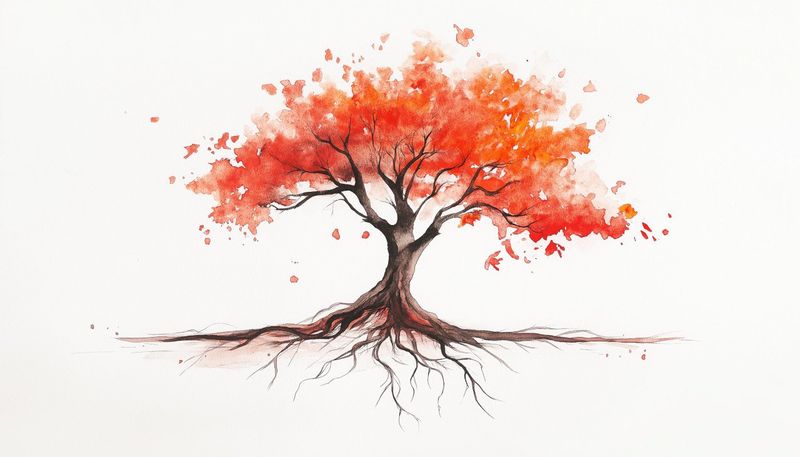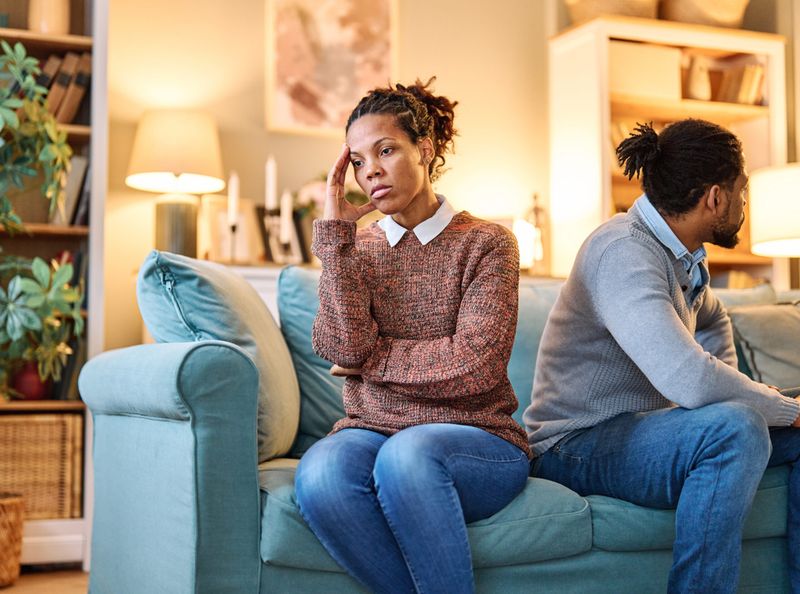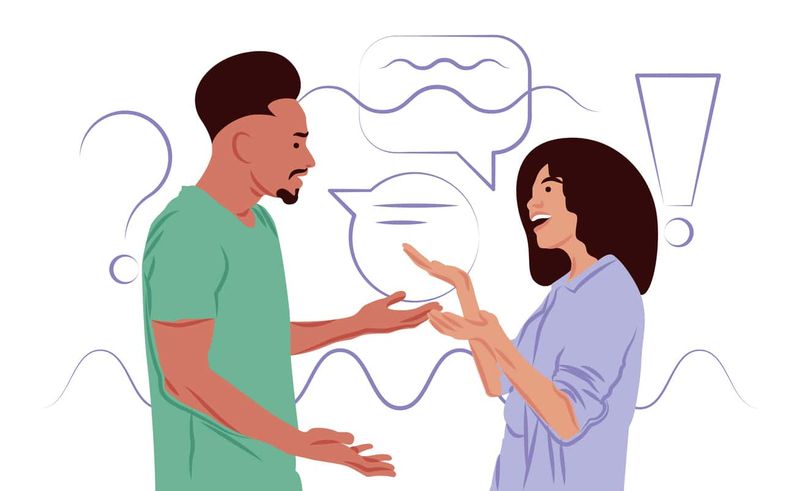Emotional Responsibility: The Key To Healthier Relationships In 16 Points
Alright, let’s drop the act. Relationships? They’re no fairytale picnic. You can love someone so hard it hurts and still end up in the same old mess—looping arguments, the silent treatment standoffs, that eerie déjà vu like you’re stuck in fights that feel like reruns from a show you never wanted to audition for.
And if you’ve ever caught yourself wondering, “Why does this keep happening?”—spoiler alert—emotional responsibility probably holds the missing keys.
Now let’s not twist this. I’m not saying you have to morph into some emotionless saint who eats resentment for breakfast and smiles through it. No, no. This is about leveling up emotionally, learning to own your stuff, and finally breaking the cycles that hold real connection hostage.
So, here are sixteen truths I’ve learned (some the hard way) about emotional responsibility. No sugarcoating—just the kind of straight-talk you’d get if we were two glasses of wine deep and you’re done pretending you’re fine.
1. Recognize and Name Your Emotions

Ever sit in your car after a long day and realize you have no clue what you’re actually feeling? That’s more common than you think. To recognize and name your emotions is like turning the lights on in a cluttered room—you finally see what’s there, and what’s tripping you up.
I used to call everything “stress” until a therapist asked, “Is it anger? Grief? Disappointment?” That question changed everything. When you put specific names to your feelings—like shame or envy instead of just “bad”—the fog clears a bit.
It isn’t just semantics. The more precise you get, the less power those emotions have to run your life from the shadows. Try it: next time you feel off, pause and give it a name, even if it feels clumsy or awkward. That’s where clarity begins. And honestly, it’s a brave thing to do—most people never even try.
2. Trace Your Emotional Roots

You ever wonder why the tiniest thing sometimes sets you off? Like snapping at someone over an innocent comment? That’s usually the tip of a much bigger iceberg.
Tracing your emotional roots means asking: “Where is this really coming from?” Maybe it’s about your mom’s old criticism, not your partner’s comment about the dishes. The past is messy, and sometimes yesterday’s wounds bleed into today’s fights.
It’s uncomfortable to go digging, but if you don’t, your triggers will keep running the show. When you trace the root, you can finally start to tend to the actual wound instead of slapping a Band-Aid on the symptom. Self-honesty is a real superpower here.
3. Let Your Feelings Out Without Hurting People

Think about the last time you wanted to scream or cry and didn’t know what to do with it. Bottling stuff up can turn you into a pressure cooker, and exploding on someone never feels good—guilt always follows.
Let your feelings out in a healthy way. That means finding outlets that don’t leave scars—on you or anyone else. Maybe you write a furious letter you never send, or you talk to someone who can hold space without judgment.
It’s not about dumping your pain or pretending it’s gone. It’s about owning what you feel and giving it safe air, so it doesn’t grow mold in the dark. Healthy expression isn’t just polite—it saves you and your relationships from collateral damage.
4. Get Real About Your Patterns

Patterns—the ones you keep stumbling over—can be sneaky. Ever notice you’re always the one apologizing, or maybe you’re the first to storm out? Me too.
The real work is noticing the script, not just the scene. What lines do you keep reciting? Are you always rescuing people, or maybe always playing the victim? Owning your patterns feels raw, as if you stand naked under harsh lights, but it’s also where change starts.
When you’re brave enough to spot your old dances, you can step off the stage and rewrite your story. Nobody said it would be easy, but at least you’re not stuck in reruns anymore. That’s real freedom.
5. Watch How Your Feelings Steer Your Choices

Have you ever bought something you didn’t need because you felt lonely? Or said yes to something you didn’t want because you felt guilty? Emotions are powerful drivers, that sometimes steer us straight into ditches.
When you start to watch how your feelings shape decisions, choices get a little clearer. Maybe you pause before lashing out, or you question if you’re about to say yes out of love—or fear. It’s not about being a robot, it’s about being honest with yourself.
Those little pauses can save you from so much regret. Noticing what’s driving your choices is grown-up stuff, and it’s the only way you get to drive your own life instead of letting your feelings grab the wheel.
6. Master the Pause Button

You know that split second before you snap? That’s where everything can change. Mastering the pause is more art than science, and it’s a skill you actually have to practice.
Pausing doesn’t mean you’re weak or letting someone off the hook. You just buy yourself time to choose your words instead of spitting out the first sharp thing that flies through your head. I’ve seen it save friendships and marriages (to be fully honest, it saved mine)—all it takes is a single breath.
It’s awkward at first, like learning to dance with two left feet. But the magic is, the more you practice, the better you get at not letting your emotions hijack your sanity. Small pause, big results.
7. Take Ownership of Your Emotions

“You made me feel this way.” It’s a classic line, and I’ve said it more times than I can count. The thing is, no one can actually climb inside your head and pull the levers—your emotions belong to you.
It doesn’t mean blaming yourself for everything that happens. It’s about acknowledging your feelings as yours, no matter what the world throws. That’s not always fair, but it is freeing.
Owning your emotions doesn’t mean for you to surrender power—it’s actually the start of taking it back. Once you realize you’re the one at the wheel, you can steer in any direction you choose. Blame is easy, but responsibility is where real change lives.
8. Stop Handing Out Blame Like Candy

Speaking of blame… It sometimes feels like relief to blame someone else—for a minute. But it’s a sugar high that crashes fast. Every relationship I’ve watched implode started with blame flying around like confetti.
It’s a short-term fix that keeps you stuck in the same old fights. The real move is to ask: “What’s my part in this?” Even if it’s just a tiny piece, own it! This cracks open the door to actual connection.
It’s easy to hand out the blame. On the other hand, taking responsibility is harder, but it’s the only way people can actually hear you—and you can finally feel heard. Toss the blame jar before it gets sticky.
9. Choose to Manage, Not Ignore, What’s Inside

Ignoring your feelings is like shoving junk in a closet and hoping you’ll never need what’s in there. Spoiler: someday, that door will burst wide open. I tried to ignore my anxiety for years—it never worked, it just leaked out in ways I hated.
When you choose to manage your emotions it means you see them as signals, not enemies. Maybe you need rest, or maybe you need to ask for help. Either way, you’re listening, not hiding.
It’s honest work, and it’s exhausting. But it beats the alternative: being run by a chaos you refuse to acknowledge. It’s messy, but it’s possible—and it matters.
10. Find Your Own Emotional Toolkit

Everyone swears by something: breathing exercises, music, walks, yoga. The trick is finding what genuinely helps you—not just what Instagram says is “healing.”
I found my toolkit by trial and error. Some things worked, some didn’t. Now, when I feel like I’m spiraling, I actually know what to reach for instead of flailing.
This isn’t trendy, it’s survival. Find what fits you, stock it, and don’t be ashamed to use it. Your future self will thank you—maybe even with a little less drama.
11. Stay Present, Even When It Hurts

It sounds cute until you’re sitting with heartbreak, anger, or regret. The urge to scroll, snack, or run away can feel overwhelming. Staying present isn’t soft or easy—it’s grit.
I once sat through a panic attack without my phone, just breathing. It was ugly, but I survived. Every time you stay with a feeling instead of numbing out, you build real resilience.
Presence means you show up for your actual, unfiltered life. Even when it’s brutal. That’s how you stop running from yourself—and eventually, from the people you care about, too.
12. Handle Hard Feelings Without Self-Destructing

In certain moments, the only thing I wanted was to break something when I felt overwhelmed. I still get that feeling from time to time. But self-destructive habits don’t heal pain—they just multiply it.
What helps? Moving your body, screaming into a pillow, or even just talking to someone who won’t make it weird. The point isn’t to look graceful—it’s to get through it without turning on yourself.
Healthy coping looks different for everyone, and it isn’t always pretty. The win is getting to the other side without burning down your own house. That’s real strength.
13. Talk About How You Feel—Out Loud

Saying “I’m not okay” out loud is an act of rebellion in a world that rewards faking fine. I used to think talking about my feelings made me a burden, but silence is a heavier weight.
Real conversations mean using “I” statements—no blame, no hiding. “I feel scared,” or “I feel angry,” not “You made me mad.” People can handle your honesty way more than you think, and occasionally, they’re grateful you started.
Voicing your feelings is messy and imperfect, but it’s how intimacy grows. Your words matter, even when they shake. Especially then.
14. Actually Listen (Don’t Just Wait Your Turn)

We all think we’re great listeners until someone says something we don’t want to hear. Real listening means you shut up—not just your mouth, but your inner running commentary.
Give someone the floor, even when their feelings make you uncomfortable or defensive. It’s not about fixing or agreeing; it’s about making space. That’s where real trust grows.
Now and then, the bravest thing is to just be quiet and actually hear the other person. You’ll be surprised how much it changes your relationship—and your own heart.
15. Face Conflict With Curiosity, Not Just Defensiveness

Conflict makes most of us want to hide, lash out, or keep score. But what if you walked into an argument with curiosity instead of a shield? I learned the hard way: defensiveness never got me closer to anyone.
Curiosity sounds like, “Help me understand.” It means you’re open, not just waiting to prove a point. That small shift can turn a fight into a conversation you both survive.
Facing conflict this way isn’t weakness. You choose connection over victory. You might not always agree, but you’ll walk away less bruised, and maybe a little wiser.
16. Prioritize Your Well-being—It’s Not Selfish

There’s this lie that taking care of yourself makes you selfish or weak. I believed it for years, running on empty, until I crashed hard. Prioritizing your well-being is actually the opposite of selfish—it’s how you show up for everyone else.
Whether it’s sleeping in, saying no, or just sitting quietly with tea (or coffee, in my case), you fill yourself up so you’re not running on fumes. The world won’t hand you breaks; you have to claim them for yourself.
Caring for your mind and body is a radical act. You’re not just surviving—you’re giving yourself a fighting chance to actually feel alive. That’s a gift to everyone you love.







